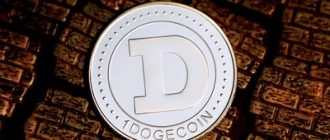
Search Engine Optimization refers to improving the volume or quality of traffic to your website from search engines via “natural” (“organic” or “algorithmic”) search results, for targeted keywords.
Why SEO?
SEO is a process of optimizing your website for a targeted keyword or keywords by getting a top ranking in the search results of search engines for these keywords. Although the exact number of times that you get your website to appear the highest in the search results depends on the weighting algorithms (the way search engines rank the sites), this is the most common way through which a web site is likely to increase your online traffic and improve your bottom line at the same time.
As you are probably aware, when it comes to online advertising, the exact figures are extremely significant. If you check out your conversion rates (what it costs/converts) on your website, you will probably be shocked to find out that you likely have 20% of your visitors leaving your site without buying a product or service on there.
Even if you figure it out, that means you’ve just lost 30% of the conversion rate you have on your website. That means you’ve lost them for every 100 visitors you had coming to your website. Now 30% of what?
What else do search engines want?
The search engines want one thing and one thing only; to find their sites / pages, when someone searches for what they are looking for. If the sites they’re searching offer a product or service, then they want to make sure they appear at the top of the list, so that people can find them. There are some things you can do to help with this, but let me tell you right now that many of these recommendations you will be making (and mostly recommendations) will not boost your sites visibility; they will however boost your Search Engine Optimization.
So my question to you is, should your site be visible to a 10% of the Internet population, or a 100%? In terms of figures, the answer is yes, your site should be visible to the whole Internet population, but the question is, how do you do this?
A Case for Natural, Algorithmic, “Organic” Search Engine Optimization
In my opinion (I’ll give you the reasons why later in this article), Natural, Algorithmic, Organic Search Engine Optimization is the best way to go. Why? Well, let’s look at some numbers.
It’s believed by most that there are 300 Billion searches/day on the search engines, which represents a visitor to the search engines every second. Through my research, there are reports that as much as 50% of these searches are on Google and 75% of these are on MSN / Yahoo. That’s a lot of people looking for something. If those people can’t find your site the first time around, chances are, that won’t be a repeat visitor. It’s more likely they will find your site again if and when you’ve religiously following the rules and values of the search engines.
If you’ve done the exact steps Google and the other search engines require (which is just as important as it gets), then when people type in what they are looking for, you’re site will come up. In fact, with many of my clients, they get at least one new typical visitor every day from the search engines.
This can happen over and over again, and this represents a very big opportunity for you. It blows OUT the other meant methods of traffic generation.
You’ve probably heard of people getting and the number of hits to their site vary from 2 a week, to 10,000 hits a day. These are, in essence, free traffic. If you can get 5,000 hits for free, you are not making the money from your site that you should be making.
So why not give it a try yourself and see what it can do for your site? If it doesn’t work, then you can just keep doing what you’ve been doing and keep your bank account in the black.
You could market your site all by yourself, meaning that you’re visiting every web site in a search engine building mood. Then it’s time to crawl out of the site and read my next article (How Does Google Views Your Site?). Your site’s search engine traffic, and by extension your earnings, will get a whole lot better in the long run if you don’t stop. Get to work!












